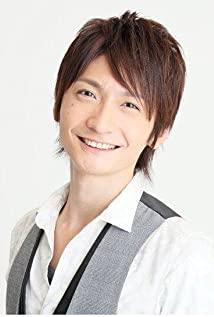(Based on the analysis of Japanese culture, try not to be spoiled as much as possible; with the development process of Shinkai Makoto's animation) Wen: Fengman Mirage After three years, director Shinkai Makoto brings a new work "Your Name." "Meet with a broad audience. The film set a record of 590,000 viewers in the first two days of its release in Japan. Within ten days of its release, the box office totaled 3.8 billion yen, and the number of viewers exceeded 2.9 million. It was also praised on social networking sites such as Daily Twitter and Yahoo. 1. Xin Haicheng and his animation road Audiences who are familiar with Xin Haicheng may know that Xin Haicheng is not an art major. Before university, he had been living in a place called Okai Town in Nagano Prefecture. After entering university, he began to experiment with children's picture book creation, and after graduation he worked for a game company. At first, he did not intend to become an animation director, but just wanted to use the techniques he learned to make a complete and his own work. He worked while creating, and it took him two months to complete a five-minute animation-"She and Her Cat" in 1999. This work is of great significance to Xin Haicheng, and it is the starting point for him to embark on animation production. "The Voice of the Stars" released in 2002 is Xin Haicheng's official debut. On the basis of the previous work, he changed the black and white picture to color, the angle of view changed from animal to human, and the protagonist became two. In addition, he also added a story to lengthen the time. Thanks to the popularity and dissemination effect of the Internet, as Xin Haicheng, he achieved a good attendance and reputation. After that, he left the game company to set up his own studio. In 2004, "The End of the Cloud, the Promised Place" is the result of Makoto Shinkai’s first challenge of a feature-length animation. It continues the world-series story of the previous work (Note: The world-series story refers to the ACG and light novels that flourished in Japan in the early 2000s. A type of story in the subcultural world. The content revolves around the protagonist "I" and the heroine, and is intertwined with the huge concept of saving the world.) The theme has mixed praise and criticism from the outside world. "Five Centimeters Per Second", released in 2007, is Makoto Shinkai’s most popular work so far. It magnifies the details and delicate emotions of daily life in the general environment of Japanese society, without much change in themes and styles. Although the work was a success, considering the understanding of overseas audiences, Xin Haicheng decided to change the narrative method and make a film that is irrelevant to cultural background and suitable for everyone to watch. This is the "Children Chasing Many Stars" released in 2011. The setting of this film is slightly different from the previous one. It includes a discussion of life and death, which is intended to emphasize the meaning of the dead to the living. The production reflects the influence of Toei Animation, "World Masterpiece Theater" (a series of works by a Japanese animation company, and the content is mostly based on children's literature from all over the world), and Ghibli. This work shows a different Shinkai Makoto, approaching the Toei line, blurring his own style. By 2013's "The Garden of Words", the lingering concept of "world system" in the previous work has almost disappeared. The story is no longer just a nihilistic worldview of the universe, but returns to society (school) in space, and moves towards tradition in culture. (Classics). The heroine finally opened up her sincere confession, which can be seen as an attempt by Xin Haicheng to break away from the concept of the world line and the themes of "missing" and "unpassable", but the narrative flaws still haven't been improved. 2. "Your name. "——A completely new audio-visual experience Before this, Xin Haicheng's works have always been haunted by an unprovoked, beautiful and sad sense of loss, and weaknesses such as fragmentary stories and loose structures have always existed. And "Your Name." 》It is remarkable in terms of rhythm control and plot advancement. From the content point of view, the film sweeps away the sadness and haze in the previous work, and embarks on a relaxed, lively and interesting public route. It is hilarious and touching. The hero and heroine are no longer immersed in their own world, but like ordinary Like people, they are in the network of family, friends, and society, and the longings that could not be conveyed between the hero and heroine finally have a clear foothold. The setting of the comet disaster reflects the impermanence of life and death after the 311 earthquake. In addition, the film adds a lot of traditional Japanese cultural elements, which not only continues the tracing of the Japanese language itself in "The Garden of Words" (Love and Lonely Sadness), it has developed on top of this; this return to tradition gives the work a true foundation and primary colors. From the production point of view, the success of the film is not only Makoto Shinkai’s increasingly mature control of narrative techniques, but also to the strong production team (Ghibli-born Masaji Ando served as the painting supervisor, Tanaka Masakao as the character setting, etc. ) And the update of production equipment (Story Board Pro software purchased). In addition to role matching, the topicality and audience acceptance were also taken into consideration when selecting the voice actors. When deciding to insert the song, I chose RADWIMPS, which is popular among the younger generation. All aspects of optimization have brought a new audio-visual experience, marking Xin Haicheng's new breakthrough in animation creation. His works are no longer just acclaimed by the beautiful scenery and pictures, but through the fluent rhythm, the fullness of characters and stories, and the return to traditional culture to move people's hearts. 3. Starting from "むすび" (musubi), the story is divided into two parallel branches. The locations are in the town "Ito Morimachi" where high school girl Miyamizu Mitsuba lives and the metropolis Tokyo where high school boy Tachibana Taki lives, both traditional and modern The opposition of is easy to read. Although there are male and female dual protagonists in the setting, the plot direction is more dependent on the heroine Sanye. Miyamizu Mitsuba is the granddaughter of Miyamizu Ichiba, the god of Miyamizu Shrine in Itoshoucho, Hida City. As the guardian of the shrine, the Miyamizu family has inherited from generation to generation. When Mitsuba's mother, Erye, was alive, his father entered Miyamizu's house in the form of "son-in-law" (injury). After his mother's death, his father, who loved her deeply, could not accept the reality. He refused to inherit the shrine and was driven out of the house by his grandmother. His father later became the mayor of Itomori Town, and he no longer paid attention to shrine affairs. Mitsuba and Yotsuba slowly grew up under the support of their grandmother, and presided over local ritual activities as maidens of the shrine. The core concept of the story starts with the name of "Itomori Town". "Itomori Town" is the creation of Makoto Shinkai and does not exist in reality. Hida City does have its place. It is located on the west side of the Hida Mountain Range and is within the jurisdiction of Gifu Prefecture. Hida has developed forestry since ancient times and has nurtured a large number of wood craftsmen. In the Meiji era, under the national policy of reproducing and prospering industries, Hida was the main labor export place for silk reeling and sent a large number of women to Lake Suwa. And Lake Suwa in Nagano Prefecture, according to Japanese netizens, is the prototype of "Lake Itomori" in the movie. Nagano Prefecture is the hometown of Makoto Shinkai. Incorporating elements of Lake Suwa and weaving into the story must also be a reflection of nostalgia. Miyamizu Mitsuba’s grandmother took the swapped Mitsuba and Yotsuba on the way to the divine body to worship the gods and asked them if they knew "むすび", saying that the name of the god of the land was also pronounced むすび. The old man said that this ancient name symbolizes several profound meanings at the same time: "Winding a thread together is a kind of むすび, connecting people and people is also a kind of むすび, and the passage of time is a kind of むすび. These can all be used in the same way. Expressed in one word. It is the same as the name of the gods, so it also has the power of the gods. The rope weaving craftsmanship that we have handed down from generation to generation, "Zumi Nyu" is also a skill with magical power, which reflects the state of time passing. " "Gathering and forming, twisting and winding, sometimes turning around, interrupting each other, and then connecting again. This is a braided rope and a symbol of time. This is むすび." "Whether water, rice or wine, as long as it enters the human body , Is a kind of むすび. What enters the body will be transformed into energy and connected with the soul.” Here, "むすび" is also written as "結び", which is derived from a concept in Japanese Shinto. The generation, development, and completion of the world and all things are carried out under the action of this kind of power. The むすび in the old population is a kind of "connection", connecting people and everything, people and time and space. Since むすび is so critical, then as the carrier of むすび, the importance of "Ito" is self-evident. "Ito" is the thread, and the most direct expression in the film is the red thread used by Mitsuba to tie the hair. The red thread loosens, the long hair becomes shorter, time goes backwards, or advances to the future; the shape of the thread changes, turning into a distant call to wrap around the wrist, looking and expecting. I guess the meaning of "Itomori" in "Itomori-cho" can be explained in this way: guarding the red line that connects each other, guarding time and space, and also guarding the town and the people who died in the past. When entering the realm of the gods, the "隠り世" referred to by the old man is the "あの世" in the Japanese concept, also known as the "eternal world". It is the country of yellow springs and the country of the dead, which corresponds to the "present world." The Japanese believe that sooner or later after death, people will turn into gods, so the hidden world can also be regarded as the kingdom of gods. The annular water belt surrounding the divine body (ancient tree) in the concave valley in the film can be regarded as the boundary line. The boundary line exists to separate the human world from the gods. If the long tunnel set by Hayao Miyazaki in "Spirited Away" allows people to enter another world without noticing it, the ring-shaped water close to the gods in this film The belt can be seen as a huge "Zhulianxuan" (the rope used in Shinto to isolate the two worlds of sacred and common people, and to dispel evil and avoid evil), which shows the existence of other worlds and shows its sacredness and inviolability in a way of isolation. It is forbidden for ordinary people to enter the realm of gods. The old man said that once they enter the realm of gods, they must exchange the most precious things in order to return to this world, and this thing has become one of the key props for the two to change their destiny trajectory. Makoto Shinkai once stated on the official website that one of the inspirations for creating this work was Ono Komachi's waka: "思ひつつ睡ればや人の见えつらむ梦と知りせばさめざらましを". The general idea is that if you fall asleep with the thoughts of you, you will definitely see you in a dream, but if you know that it is a dream, I would rather not wake up. The heroes and heroines in this film exchange identities in dream-like situations, and live day after day of life on behalf of each other. 4. The original landscape in Japanese culture. The concept of "original landscape" flourished in Japan in the 1970s. Starting from Okuno's book "Original Landscape in Literature", it expanded from literature to anthropology, psychology, geography, and Environmental education, architectural landscaping and other fields. The original scenery in the personal sense is mostly formed from the original experience of hometown and childhood, while the original scenery in the broad sense involves historical, national, and cultural aspects. The belief in gods, the scenery of Lake Suwa, the ancient customs and weaving craftsmanship that continue in Miyasui Shrine, etc. shown in "Your Name" can be regarded as a manifestation of the original landscape of Japanese culture. It evokes people’s nostalgia and gives People with infinite nostalgia. The original landscape has a significance that cannot be ignored in contemporary times. It carries our search for our own roots and our gaze into the depths of culture. In this sense, this film is also a successful attempt by Xin Haicheng to return to traditional culture. It cleverly weaves the hidden worlds of tradition and modernity, past and present, dreams and reality, the present life of human inhabitation and the inhabitation of the soul, and it is like a rope-knitting process that is sometimes crossed and twisted, sometimes interrupted, and returned to the original point. The fate of the protagonist and heroine was changed on the night the comet hit the earth. The first meeting of the two can only disappear at the boundary line, and humans and inhumans co-exist between heaven and earth. The original landscape has a significance that cannot be ignored in contemporary times. It carries our search for our own roots and our gaze into the depths of culture. In this sense, this film is also a successful attempt by Xin Haicheng to return to traditional culture. It cleverly weaves the hidden worlds of tradition and modernity, past and present, dreams and reality, the present life of human inhabitation and the inhabitation of the soul, and it is like a rope-knitting process that is sometimes crossed and twisted, sometimes interrupted, and returned to the original point. The fate of the protagonist and heroine was changed on the night the comet hit the earth. The first meeting between the two can only disappear at the boundary line, and humans and inhumans co-exist between heaven and earth. The original landscape has a significance that cannot be ignored in contemporary times. It carries our search for our own roots and our gaze into the depths of culture. In this sense, this film is also a successful attempt by Xin Haicheng to return to traditional culture. It cleverly weaves the hidden worlds of tradition and modernity, past and present, dreams and reality, the present life of human inhabitation and the inhabitation of the soul, and it is like a rope-knitting process that is sometimes crossed and twisted, sometimes interrupted, and returned to the original point. The fate of the protagonist and heroine was changed on the night the comet hit the earth. The first meeting between the two can only disappear at the boundary line, and humans and inhumans co-exist between heaven and earth.Every magic hour (たそかれ、かたわれ). 5. Concluding remarks Unlike directors known to the audience such as Hayao Miyazaki, Mamoru Hosoda, Hideaki Anno, Makoto Shinkai’s creative foundation is based on game production. He produced OP animations for 18 prohibited games in the early days, and also made various beautiful girl games around Make the cover. In addition, before "Beyond the Cloud, the Place of Agreement", his work has always been one person in charge of the entire production process. From the first short film in 1999 to the highly acclaimed "Your Name." "Xin Haicheng has never stopped exploring and innovating, and the changes in his works also reflect this effort. Xin Haicheng once said that he hopes that the animation will be like a band-aid to the audience; when injured, it can be used to accelerate the wound healing, and after recovery, it will be torn off without nostalgia. Finally, I attach a paragraph written by the director Xin Haicheng on the film brochure: "This is a movie dedicated to all young people in their adolescence and adults who still have adolescence fragments in their hearts. I bet on my own. Let's complete its production, I hope everyone can enjoy it."
References: https://ja.m.wikipedia.org/wiki/むdesu industrialization https://ja.m.wikipedia.org/wiki/ Hida https://ja.m.wikipedia.org/wiki/ [] Makoto Shinkai「君の名は」Kakugawaつばさ文库2016.8 全ての人たちに楽しんでもらいたい、そう思った名はままの名は『君の名は。』― Makoto Shinkai Supervisory Studio http://sp.animatetimes.com/news/details.php?id=1472453958 あにこれ β Shinkai Makoto Special Design https://www.anikore.jp/features/shinkai 『君の名は. "Shinkai Makoto Intapora, sequel to the story of the declining earthquake disaster / "Shine Gira" and the synchronicity? kai-you.net/article/32911 ushered in a new era belonging to Makoto Shinkai. Japanese film critics commented on Makoto Shinkai’s "Your Name." 》Http://www.acgdoge.net/archives/11037 Note: The relevant content of "Original Landscape" is the refinement of the author's pre-study of the master's thesis——————————————————— Welcome Pay attention to the public account: Dongying Literature and Art Communication (dywytx) Cutting-edge Japanese literature and art information, in-depth interpretation of Japanese culture. Observe, read, and appreciate the Eastern and Western art and literature, starting from here.
View more about Your Name. reviews










